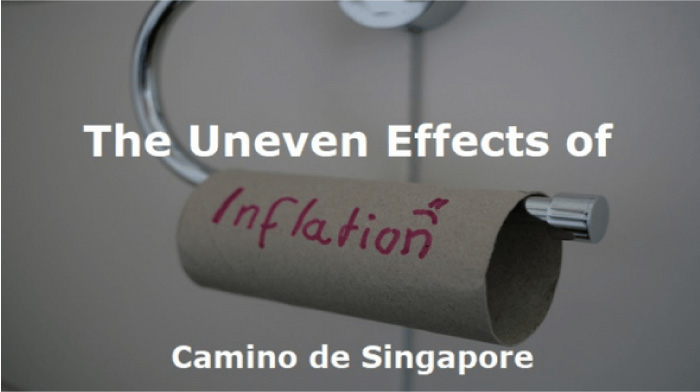No products in the cart.

Photo by https://unsplash.com/@joa70
Perhaps one of the most persistent issues discussed in news and dinner table conversations today is inflation; it is an economic jargon that has found home in every lay person’s vocabulary. Rapid increase of prices hurts everyone, after all, and so it is the perfect reason to air out complaints at every culpable party and factor.
Nevertheless, it is important to add another perspective to talks about price increase: its disproportionate impact on different income groups. Consider recent news about wage increases for lower-income workers. An effectively minimum wage was implemented recently to benefit 159,000 workers, and the Progressive Wage Model kicked off for retail workers, giving them a roadmap for structured pay increases over a number of years. This is good news and worth celebrating for sure, even though there is still much room for improvement. But inflation can single-handedly erase any net benefit from these policies. Furthermore, while more expensive food at the hawker centre and higher-priced groceries might merely inconvenience some families, they can have serious impact on those barely making ends meet. And then there is the retired seniors group. Many of them have to deal with both increasing prices and lower allowance from their children who find it harder to support their parents for the same reason.
The above consideration on inflation’s disproportionate impact on different groups is just one example of a general truth: those with less resources are more vulnerable to economic events, even those that affect everyone. This is in addition to the sad reality that the poorest and the marginalised are often the most ill-treated, whether during an economic boom or bust. In other words, they are often the least preferred and considered groups of people because they have little power or influence.
Being aware of this sinful reality and in the countercultural spirit of the gospel, the Catholic Church opts to do the opposite: we are called to prefer the poor and marginalised to other groups of people.
This teaching on the preferential option for the poor has its roots in Scripture. In the Gospel of Matthew, Jesus said in a parable, “Truly I tell you, just as you did it to one of the least of these brothers and sisters of mine, you did it to me” (NRSV). Thus, Christ has a preference for the poor. To show love to the poor is to directly show love for the Son of God himself.
This teaching may sound idealistic, but it is also very practical. As Pope Leo XIII taught in Rerum novarum: “The richer class have many ways of shielding themselves, and stand less in need of help from the State; whereas the mass of the poor have no resources of their own to fall back upon . . . it is for this reason . . . they . . . should be specially cared for . . .”
Over the centuries, this teaching on the preference for the poor has become part of the Catholic Church’s core teachings. Perhaps it is because it embodies the spirit of the gospel so well while at the same time being keenly aware of the reality we live in.
What does this mean for all of us?
The disproportionate impact of inflation on the poor and the Church’s teaching to prefer them to the rest should push those of us less affected to think about how much worse it is for some people. Further, we should also consider whether we are called, despite the ongoing pain, to contribute even more towards various efforts meant to help the vulnerable. In other words, our responsibility, if we have the resources, does not necessarily diminish during more difficult times. On the contrary, it might increase.
If that sounds counterintuitive, it is probably because the gospel often is.
Related News
- Some seniors bear brunt of inflation as children give them less money (The Straits Times, 29 August 2022)
- 159,000 low-wage workers will earn at least S$1,400 from Sep 1 (CNA, 1 September 2022)
- Retail workers taking home higher pay as sector’s progressive wage model kicks in (The Straits Times, 7 September 2022)
Erwin Susanto is a staff member of Caritas Singapore. He enjoys boring his friends with his interest in Old Testament/Hebrew Bible studies and finds it hard to resist commentating on all kinds of contemporary issues. He tries his best not to sound “cheem”.
